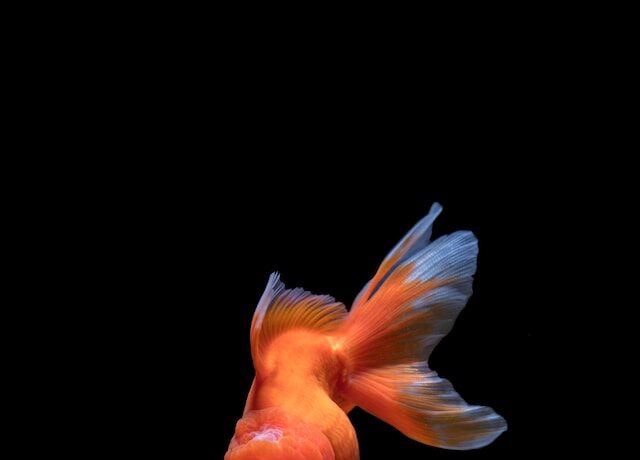Welcome to our in-depth manual on selecting the best nutrition for your aquatic friends! Fish require a balanced diet to grow and maintain good health, just like humans do. Your provision of food is essential to their development, colour, immune systems, and general health. But choosing the best fish food for your finned companions might be confusing with so many varieties on the market nowadays.
We’ll delve deeply into the world of fish food in this blog post and assist you in understanding the various varieties that are available. We’ll go through important things to think about when choosing fish food and examine the components of these items in more detail. You’ll have all the information necessary to decide what belongs in your aquarium or pond by the time you finish this book.
So take your fishing pole and get ready to learn about the best nourishment to choose so that your underwater friends can continue to swim joyfully for years to come!

The significance of feeding fish properly
For the health and wellbeing of our aquatic friends, proper nourishment is essential. Fish require a balanced diet to thrive, just like humans do. A high-quality fish meal gives them the crucial nutrients they need to thrive, improve their colour, strengthen their immune systems, and promote general health.
Fish that are malnourished are more likely to experience different health problems, including impaired growth, reduced immune systems, and even organ failure. Malnutrition can also result in a decline in activity levels and reproductive problems.
Proteins are essential for muscle growth and repair in fish. Look for fish food that includes high-quality sources of protein, such as fish or prawn meal. These components offer the essential building blocks for the development of healthy tissue.
Fish require vitamins to stay in the best possible health. They support healthy metabolic processes, bone growth, and disease resistance. In order to achieve these nutritional needs, fish foods supplemented with vitamins A, D, E, K, and B complex are ideal options.
Minerals like calcium and phosphorus, which help form bones and maintain the osmotic equilibrium in fish species’ bodies, should be a part of a balanced diet.
It’s crucial to choose a variety of feeding options, such as dry flakes or pellets along with frozen or live foods like bloodworms or brine prawns, to ensure that your finned buddies enjoy a balanced diet.
Keep in mind that supplying your fish with the right nutrients not only ensures their health but also increases their beauty by encouraging brilliant colours and robust fins, feathers, or scales (depending on the species). So be sure to provide them with a varied cuisine that is specially adapted to their dietary needs!
Knowing the many fish food options
Understanding the many types of fish food available is essential for giving your fish the nourishment they need. Fish, like people, have unique nutritional requirements that must be addressed in order for them to flourish and maintain good health.
Flakes are a typical kind of fish meal. Shrimp, algae, and vitamins are among the elements used to make fish flakes. Most aquarium fish species can easily swallow these flakes, which are simple to feed.
Another well-liked method of feeding fish is pellets. Depending on the model you choose, they are available in a range of sizes and can either float or sink. To suit the nutritional needs of your aquatic pals, pellets frequently include a well-balanced mixture of proteins, carbs, lipids, vitamins, and minerals.
A great source of nutrients for many species of carnivorous or omnivorous fish is frozen food. Brine shrimp, bloodworms, daphnia, or mysis shrimp are among the alternatives. These items provide a healthy diet that is comparable to what wild fish would eat in their native environments.
Some varieties of freshwater tropical fish can also be given live items like blackworms or tubifex worms. These live treats encourage natural hunting instincts in addition to providing vital nutrition.
It’s vital to remember that some species may require specialised diets made just for them, such as pellets designed for herbivores for vegetarian species or food based on insects for insectivores.
Knowing the many fish food options guarantees that you can select the best choices depending on the nutritional requirements of the particular occupants of your tank.
Considerations for selecting fish food
There are a number of crucial elements to take into account when selecting the best fish food for your aquatic pets. The type of fish you have is the first consideration. Because different species have distinct dietary needs, it’s critical to choose a fish meal that fits those needs.
The nutritional value of the fish food is another aspect. Choose foods that offer a well-balanced diet that include needed vitamins, minerals, proteins, fats, and carbohydrates. Additionally, it’s important to think about whether the meal has any extra supplements or enhancers that can benefit your fish’s overall health and immune system.

Consider if you want dry or frozen fish food next. Both choices have advantages; frozen foods frequently keep more of their original nutrients while dry goods frequently are more convenient and have a longer shelf life.
Think about the size of the flakes or pellets in relation to the size of your fish’s mouth. It’s important to make sure they can eat and digest the meal without any problems.
When choosing fish food, always make sure it is of the highest quality. Choose trustworthy brands that place an emphasis on using premium ingredients and adhering to correct manufacturing procedures.
You can give your fish the best nutrients for their growth and general health by taking these things into account when picking their feed!





